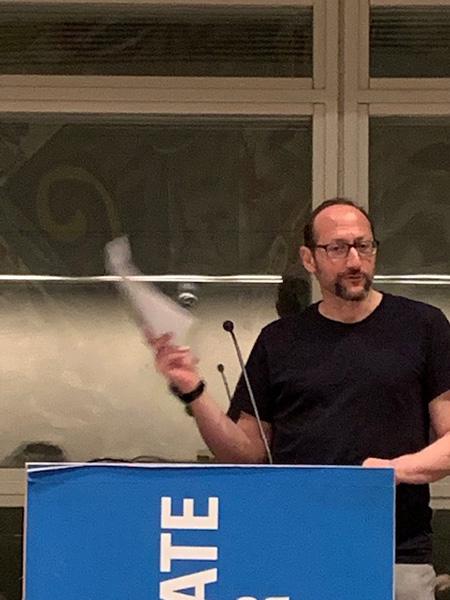
Professor Keith Gandal and his brother Neil Gandal's research showed that U.S. death tolls from COVID-19 are 40% lower on the weekend.
Keith Gandal, professor of English in the Division of Humanities and the Arts at The City College of New York, and his brother Neil Gandal, professor of economics at Tel Aviv University, found that U.S. death tolls from COVID-19 are 40% lower on the weekend.
Deaths rise from Tuesday-Friday and come down Saturday-Monday—hitting a low on Sunday or Monday, and the same pattern has repeated every single week of the pandemic. Deaths during weekends were at least 40% lower than on weekdays.
According to their research, the average death toll from COVID-19 in the U.S. is 901.4 deaths on Saturdays, 682.4 on Sundays, and 699.1 on Mondays. On Wednesdays the death average is 1,130.2, nearly 95% higher than on an average Sunday.
The same effect was found in COVID-19 mortality rates for the rest of the world—though much weaker; there is a 20% less chance of dying from the disease on weekends than on weekdays globally. Historical research shows that there is such a weekend effect for overall deaths, but it is weaker still.
“It seems probable that something social is going on with overall U.S. COVID-19 deaths, corresponding to differing behaviors and attitudes tied to different days of the week,” said Gandal. “Perhaps people relax more on the weekends, even in hospitals or nursing homes.”
However, the weekend effect on COVID-19 deaths does not exist in New York City.
“Meanwhile, in NYC, the familiar rhythms of the American week were simply wiped away in April and May. Every day seemed the same, as in the movie ‘Groundhog Day.’ Except it was Coronavirus Day. All day long you heard ambulances, and the usually crowded streets were empty,” he said. “Could worrying, watching the news, and ultimately panicking about COVID-19 be increasing the death toll?”
About the City College of New York
Since 1847, The City College of New York has provided a high-quality and affordable education to generations of New Yorkers in a wide variety of disciplines. CCNY embraces its position at the forefront of social change. It is ranked #1 by the Harvard-based Opportunity Insights out of 369 selective public colleges in the United States on the overall mobility index. This measure reflects both access and outcomes, representing the likelihood that a student at CCNY can move up two or more income quintiles. In addition, the Center for World University Rankings places CCNY in the top 1.8% of universities worldwide in terms of academic excellence. Labor analytics firm Emsi puts at $1.9 billion CCNY’s annual economic impact on the regional economy (5 boroughs and 5 adjacent counties) and quantifies the “for dollar” return on investment to students, taxpayers and society. At City College, more than 16,000 students pursue undergraduate and graduate degrees in eight schools and divisions, driven by significant funded research, creativity and scholarship. CCNY is as diverse, dynamic and visionary as New York City itself. View CCNY Media Kit.
Ashley Arocho
p: 212.650.6460
e:
aarocho@ccny.cuny.edu
View CCNY Media Kit.